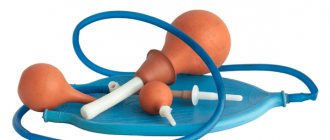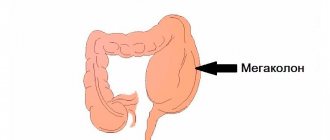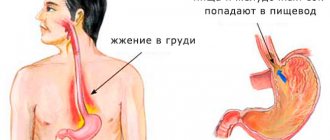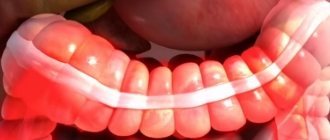Incomplete bowel movement is a common occurrence that plagues many people. Especially in large cities. It leads to severe emotional and physical discomfort, and this is the main danger of the disease. The quality of life of a person who lives with this syndrome decreases.
Quite often, incomplete bowel movement accompanies other diseases. This happens with hemorrhoids, rectocele, condylomas, polyps. Constipation and diarrhea may occur, and their alternation is common. In addition to everything else, there is abdominal pain and general malaise. All this ruins a person’s life.
Diet
Special medical tests will help you understand the diagnosis. It is necessary to differentiate the syndrome of incomplete bowel movement from other, more serious diseases.
Sometimes a person himself becomes the culprit of his condition because he eats completely incorrectly. He eats foods that cause increased peristalsis and lead to increased gas formation. For effective diagnosis, a strict diet is required. Perhaps then the feeling of incomplete bowel movement will go away without any medications. Let's consider its basic principles:
- Excluded are products that are harmful to the intestines, namely those that provoke gas (all types of flour products, cabbage).
— Antibiotics and laxatives are not allowed, and in general it is better not to take anything before the examination, then the diagnosis will be as accurate as possible.
— You need to eat fiber in large quantities to improve intestinal function (bran, fresh vegetables and fruits). Oatmeal for breakfast can help a lot. The porridge must be boiled well, then it will envelop the intestines, which will have a positive effect on its condition.
— All dishes must be baked or steamed, but in no case fried.
- To help, eat small portions, but often.
- It is not recommended to drink tea, alcohol, coffee, or any type of soda, since, again, this can cause gas formation in the intestines. It is better to switch to non-carbonated mineral water. Especially if there are frequent false urges to defecate.
Diagnostics
For diagnosis, it is necessary to carry out a complex of laboratory and instrumental research methods. Laboratory tests include:
- General blood and urine analysis: assess the general condition of the body, exclude the inflammatory and infectious nature of the disease;
- Coprogram: allows you to evaluate the motor-evacuation function of the gastrointestinal tract. They examine the composition of stool, its consistency, pH, the presence of mucus and blood cells;
- If a concomitant intestinal infection is suspected, bacteriological culture of stool on nutrient media is prescribed;
- Biochemical blood test: checks the function of the pancreas and liver, which play a significant role in the normal digestion process;
- Examine stool for the presence of intestinal dysbiosis;
- Fecal occult blood test;
Also, to clarify the diagnosis, you should undergo the following instrumental studies:
- Colonoscopy: examines the condition of the colon mucosa. The method allows you to identify defects in the mucous membrane, neoplasms, and narrowing of the intestinal lumen. The procedure takes a short time (10-15 minutes) and is carried out using a special device - an endoscope;
- Irrigoscopy: refers to x-ray research methods. A contrast agent is injected into the intestine, which makes it possible to evaluate the structure of the large intestine and the presence of abnormalities or neoplasms in it;
- To assess the function of the anal sphincter and rectal muscles, anorectal manometry is performed;
Since the state of the nervous system and eating habits play an important role in the mechanism of development of irritable bowel syndrome, consultations with a psychotherapist and nutritionist may be necessary.
Treatment with medications
Taking certain medications will help alleviate unpleasant symptoms.
Firstly, it is necessary to get rid of gas formation in the intestines. To do this, they use probiotics, products enriched with enzymes that improve the process of digesting food and absorbing nutrients. The normal microflora in the intestines is well preserved by special preparations with bacteria and acids. These include “Hilak Forte”, “Linex”, “Bifidumbacterin”. It is imperative to enrich your diet with lactic acid products. Particularly effective for incomplete bowel emptying are kefir, fermented baked milk, yogurt, and various live yoghurts.
Secondly, if there is a tendency to diarrhea, then it would be advisable to use drugs that have a fixing effect. These include Smecta and Loperamide. It is better not to get carried away with these remedies, since you can achieve the opposite effect, and then you will have to deal with constipation. Traditional methods of treating diarrhea can be used as adjuncts. Eat, for example, millet porridge or drink herbal decoctions (oak bark, St. John's wort, elderberry). Then the patient will not be haunted by the feeling of incomplete bowel movement.
Thirdly, if a person suffers from constant constipation, medication cannot be avoided. These are special prokinetic drugs. For example, “Duphalak”, “Motilium”, “Mukofalk”, “Sennade”. Beet juice and prunes have proven themselves well as folk remedies.
You should take any medicine only after consulting a doctor. Even if we are talking about drugs with beneficial bacteria in their composition.
Diagnostic measures
Before you can understand how to treat incomplete bowel movements, you need to identify the cause. At the first signs of pathology, you should seek help from a doctor. He will take an anamnesis and identify the patient’s complaints. Then he will order an examination.
- digital examination of the rectum. This will allow you to assess the condition of the rectal mucosa;
- donating blood for general and biochemical analysis. If there is an inflammatory process, then this will be indicated by ESR, the number of leukocytes and erythrocytes;
- submitting stool to detect occult blood, parasites or bacterial infection;
- ultrasound diagnostics of the abdominal organs. Allows you to examine the inside, evaluate their shape and size. Types of formation using ultrasound.
Additional examination methods may be prescribed.
- Survey radiography of the abdominal organs. It is carried out if there is a suspicion of intestinal obstruction or congenital anomalies of the gastrointestinal tract.
- Colonoscopy, sigmoidoscopy. Methods for visual inspection of the mucous membrane of the large intestine. A thin tube is inserted into the rectum, at the end of which there is a camera and an LED.
- Irrigoscopy. Similar to radiography, only barium contrast solution is used during diagnosis.
In more severe cases, computed tomography or magnetic tomography is used.
Based on the results of the study, a diagnosis is made. If there is a suspicion of pathology, the patient is sent to specialists.
The effectiveness of psychotherapy
If there is a constant feeling of incomplete bowel movement, in addition to drug treatment, psychotherapy will be effective.
Of course, not everyone has the opportunity to visit a psychotherapist, because his services are quite expensive. But sometimes this cannot be avoided, since in 70% of cases the psyche is to blame for the development of this illness. It turns out to be a kind of vicious circle: the patient has problems with the act of defecation, he becomes fixated on them, as a result they appear twice as often. You can get rid of this syndrome on your own, but this will require time, willpower and the ability to escape from your own experiences. Psychotherapy can be individual or group. Depending on individual characteristics, patients themselves choose a convenient way to attend classes. Some people will need several sessions, and they will feel better, while for others, even a dozen will not be enough.
Prevalence of constipation
Constipation is very common among people who have indigestion. The tendency to constipation often leads to the formation of very serious proctological diseases. Thus, this problem is characterized by a high degree of social significance. Due to its prevalence and characteristic deterioration in the quality of life of patients, chronic constipation is classified as an independent syndrome. Today, the problem of constipation is very often studied by gastroenterologists and proctologists, as well as many other specialists.
Constipation often affects young children and elderly people over 60 years of age. If there is a constant feeling of difficulty in defecation and if relief is impossible (even with strong straining), it will be necessary to use stimulants that will help release fecal contents from the rectum. Also stimulating actions will be pressing on the perineum or on the walls of the anus.
Due to the constant feeling of insufficient emptying of the rectum, prolapse of the perineum syndrome develops. Chronic constipation occurs when the frequency of bowel movements occurs less than three times a week. Defecation is difficult and requires considerable effort. In this case, the consistency of the resulting stool is quite dense, lumpy, and characterized by a feeling of incomplete release of the rectum.
What leads to incomplete bowel movement: treatment methods depending on the cause
Incomplete bowel movement is a syndrome characteristic of many intestinal diseases and functional digestive disorders.
Almost every person sooner or later encounters this problem, which signals a violation of intestinal function and requires the adoption of therapeutic and preventive measures. More often, residents of large cities suffer from incomplete bowel movement syndrome, which is associated with low physical activity and poor quality food. But residents of rural areas who eat fresh, high-quality foods and exercise a lot rarely suffer not only from this syndrome, but also from other gastrointestinal diseases.
The feeling of incomplete bowel movement is not just an unpleasant symptom, but also a factor that disrupts a person’s lifestyle
What are the causes of incomplete bowel movement?
- Irritable bowel syndrome;
- Haemorrhoids;
- Colon polyps;
- Malignant intestinal tumors.
This article is not a guide to action. With its help, we want to draw patients’ attention to the importance of any unpleasant symptom, and emphasize that prevention and timely treatment of diseases will help maintain health for many years.
Irritable bowel syndrome is the main cause of the feeling of incomplete bowel movement
The feeling of incomplete bowel movement is most often a component of irritable bowel syndrome. This is a condition in which there are no organic changes in the intestines, but under the influence of constant emotional stress and stress, the correct innervation of the intestines is disrupted, which is manifested by incomplete emptying syndrome and diarrhea, followed by constipation.
In addition to stress, pathology can be caused by the following factors:
- Frequent overeating. Overfilling and distension of the intestine increases the sensitivity of nerve receptors.
- Hormonal imbalance. Women with this pathology note an increase or appearance of symptoms of irritable bowel syndrome in the first days of menstruation.
- Poor nutrition. Consumption of fatty and smoked foods, as well as carbonated drinks, provokes intestinal upset in people with a predisposition to the development of irritable bowel syndrome.
- Dysbacteriosis and intestinal infection can serve as a trigger for the feeling of incomplete bowel movement.
- Hereditary predisposition in the development of intestinal pathologies also plays an important role.
With this disease, the feeling of incomplete bowel movement is accompanied by abdominal pain and bloating, which precedes the urge to go to the toilet. The symptom of incomplete emptying intensifies and the urge becomes more frequent, often under stress.
How to eliminate the feeling of incomplete bowel movement if there are no objective reasons for its development? You should change your lifestyle. It is recommended to rest more, walk in the fresh air; in severe cases, doctors may advise changing jobs to remove the source of stress.
Advice: Distraction from problems will remove the main pathogenetic mechanism of incomplete bowel emptying - a violation of nervous regulation. It is also recommended to take sedatives based on plant extracts (valerian extract, glycine).
And the second, important part of the treatment of incomplete bowel movement is to change the nature of the diet. You need to eat often and in small portions, give preference to soups, steamed or baked foods, increase the consumption of lean varieties of fish and meat, vegetables and fruits typical for the region at this time of year.
Haemorrhoids
Hemorrhoids are progressive varicose veins in the anus. The main cause of the disease is chronic blood stagnation in the pelvis. This is often facilitated by the patient’s sedentary lifestyle. The development of the disease is accompanied by ulceration, bleeding, compaction and thrombosis of the affected veins of the rectum.
Causes and possible localization of hemorrhoids
Incomplete bowel movement with hemorrhoids is combined with pain during bowel movements. And bleeding of hemorrhoids leads to the appearance of red blood on the surface of the stool. Diagnosis of the disease is carried out by a proctologist based on examination, colonoscopy, radiology and ultrasound.
Important: Today, treating hemorrhoids is not difficult, and with early diagnosis, doctors even use minimally invasive surgical methods.
In general, treatment of incomplete bowel movement due to hemorrhoids comes down to the following measures:
- Normalization of digestion and treatment of constipation;
- Drug therapy for hemorrhoids (stimulants, painkillers and anti-inflammatory drugs);
- Gentle surgical intervention: ligation with latex rings, sclerotherapy, electrocoagulation, laser treatment, radio wave coagulation;
- Classic radical surgery with excision of the rectal mucosa and hemorrhoids (used in advanced stages).
After treatment, the patient should be periodically observed by a surgeon, who can promptly detect a relapse.
Colon polyps
Colon polyps are benign mucosal formations that cause intestinal dysfunction.
Single and small polyps can exist asymptomatically for many years, and the patient will not be aware of their presence.
In this case, the polyps are not subject to surgical removal: the patient is recommended to undergo regular monitoring and, if necessary, surgical removal.
Detection of colon polyp during colonoscopy
However, if polyps disrupt the function of the gastrointestinal tract and the intestines do not empty completely, they should be surgically removed. The operation is performed without opening the abdominal cavity through the anus. After the polyps are removed, bowel function is restored and the feeling of incomplete bowel movement goes away. It is impossible to get rid of this symptom caused by polyps by other methods.
Malignant intestinal tumors
The feeling of incomplete bowel movement can also accompany extremely dangerous diseases, such as colon cancer. Therefore, we once again emphasize the importance of timely contacting specialists. Malignant tumors can be successfully treated in the early stages, so early diagnosis is the key to a complete cure.
In addition to the feeling of impaired bowel movement, colon cancer is accompanied by the following symptoms:
- Diarrhea followed by constipation;
- Blood in the stool;
- Weakness, decreased performance;
- Unreasonable increase in temperature;
- Night sweats.
This diagnosis is confirmed only by histological examination - during a colonoscopy, a small area of the identified tumor is removed. The removed tissue is examined under a microscope for the presence of malignant cells. Treatment depends on the stage of the tumor and includes surgery along with radiation or chemotherapy.
Advice: As you can see, the feeling of incomplete bowel movement is not always a harmless symptom, so consult a doctor as soon as possible. Due to the widespread prevalence of oncology, preventive examination will not harm anyone.
Other causes of incomplete emptying
Other reasons for the feeling of incomplete bowel movement include a sedentary lifestyle, excess weight, poor diet, premenstrual syndrome, and diabetes. However, having prescribed a standard set of examinations (stool analysis, radiography of the abdominal organs, endoscopy) and not finding any visible pathology, the doctor will still make a diagnosis of irritable bowel syndrome.
Important: The International Classification of Diseases does not identify such a disease as incomplete bowel movement. The diagnosis will sound like irritable bowel syndrome.
In this case, treatment for incomplete bowel movement will consist of changing lifestyle and diet, as well as drug therapy for stress, impaired intestinal motility and dysbiosis.
Prevention of development
In order to prevent incomplete bowel movement and the diseases that cause it, you should follow the following nutritional rules:
- Frequent, fractional meals (small portions 4-5 times a day);
- Avoid snacking on the run;
- Refusal of fast foods and carbonated drinks: cookies with kefir will better satisfy your hunger;
- Adequate consumption of fruits and vegetables;
- Increasing the diet of liquid foods, as well as steamed or oven-cooked foods.
Recommendation: Move every day. A half-hour walk will tone your body, refresh your head and improve your mood. Take a break from everyday activities so that everyday problems do not disturb your emotional state. This is an excellent preventative measure not only for the feeling of incomplete bowel movement, but also for other nervous and somatic pathologies.
All materials on the website ozhivote.ru are presented for informational purposes only, contraindications are possible, consultation with a doctor is MANDATORY! Do not engage in self-diagnosis and self-medication!
Source: https://ozhivote.ru/nepolnoe-oporozhnenie-kishechnika/
Incomplete bowel movement
7 April 2021, 12:04
Every person, at least once in his life, experiences indigestion. Impaired bowel movement is the most common disorder. It immediately affects your well-being and disrupts your usual way of life. If such a problem causes discomfort for a long period, you need to contact a specialist and correct the situation.
What is the normal frequency of bowel movements?
The number of bowel movements for each adult is individual, but normally regularity is required. The intestines should be emptied 1-2 times a day (usually in the morning after breakfast), but not less than once every two days.
There are people who normally have a bowel movement once every 7 days and feel great.
Therefore, the International Association of Gastroenterologists has identified special signs (“Rome criteria”) that determine incomplete bowel movement.
Causes of bowel movement disorders
Eating irregularities can cause constipation.
For some, difficulties with excreting feces appear occasionally, while for others, an overcrowded intestine occurs constantly.
Why is this happening? Most often, the feeling of incomplete bowel movement occurs in people prone to constipation or with functional bowel disease.
The causes of the disorder are different, even psychological, but the most common among them are the following:
- poor diet (processed foods and not eating enough fiber);
- lack of physical activity leads to stagnation in the pelvic organs;
- stressful situations and nervous shocks;
- use of large quantities of medications, including laxatives (tablets, suppositories, syrups);
- injuries and general diseases of internal organs.
Doctors identify a tendency to constipation as a separate cause that causes a feeling of fullness in the intestines. Insufficient bowel movements are not an independent disease, but a symptom of it. The most common causes of constipation are:
- congenital or acquired abnormalities of the intestinal structure;
- the presence of neoplasms in the organ: benign or malignant;
- disorder of intestinal motor-evacuation function.
Individual determination of the cause of incomplete emptying syndrome includes all disturbing signs and a mandatory examination.
Symptoms
Constipation is the body's signal about a problem with the gastrointestinal tract.
Regular bowel movements are a necessary condition for the normal functioning of the body. Failure to comply with this condition puts not only the organs of the digestive system at risk. The body immediately warns of a complication that has arisen, and the feeling of a full intestine is not the only symptom. There are signs not related to the digestive organ.
Bowel symptoms
- Violation of the process of defecation. One has constipation, in which bowel movements are delayed, while the other has diarrhea and rapid removal of contents. There is no urge to defecate, or the urge is false.
- Pain is a mandatory symptom caused by stimulation of nerve processes and dilation of the intestine.
It can be different: dull, raw, cramping, sharp. Pain in the lower abdomen, on the left side, is a characteristic feature of constipation. When upset, it spreads throughout the abdomen. - Painful swelling.
- Heaviness in the stomach.
The process of emptying is carried out with tension and is painful. There remains a feeling of incomplete bowel movement after defecation.
Other symptoms
It happens that in addition to the above-described signs:
- headache;
- insomnia;
- pain in the lumbar region;
- general weakness.
How to treat the syndrome?
It is possible to achieve complete recovery by adhering to a comprehensive treatment method.
It is necessary to treat the syndrome not only with suppositories and tablets; great importance is given to the psychological and emotional state of the patient.
Serious psychological problems require the intervention of a specialist who conducts psychotherapy sessions. In parallel with the settlement of the psycho-emotional state, treatment is carried out.
There are several methods of therapy: traditional (medicinal) and folk.
Drug therapy
Treatment with medications is aimed at alleviating the condition and relieving bothersome symptoms. The doctor prescribes:
- probiotics that enrich the body with necessary enzymes and support the intestinal microflora, for example, Espumisan, Hilak Forte;
- strengthening drugs for diarrhea - “Loperamide”;
- prokinetics for constipation - Duphalac, Motilium, Bisacodyl, suppositories with glycerin, gas-forming suppositories;
- painkillers - No-Shpa, Papaverine, in Spazmomen suppositories.
Diet food
Diet is an integral part of treating the disease.
The right approach to nutrition is important in the treatment of the syndrome and as a prevention. A healthy, fractional diet is recommended for the patient; meals should be divided into 5-6 times and eaten in small portions.
Products that increase flatulence (cabbage), alcohol, salty and smoked foods are completely excluded from the diet. The main part of the meal should be vegetables, fruits, dairy products, steamed meat and fish. It is imperative to monitor the amount of liquid you drink.
In one day, a person should drink at least 2 liters and be sure to drink a glass of clean water in the morning, before meals.
Possible consequences
Irregular emptying and the use of suppositories and syrups to improve the situation leads to addiction and general malaise and to more serious complications.
If defecation does not occur completely or is delayed, the stool becomes dense and, passing through the intestines, leaves cracks and ulcers, resulting in an inflammatory process.
Long-term disruption leads to the development of hemorrhoids, partial or complete obstruction.
Incomplete emptying syndrome is dangerous for people with heart failure, since straining during bowel movements can cause increased pressure.










